News
Latest updates
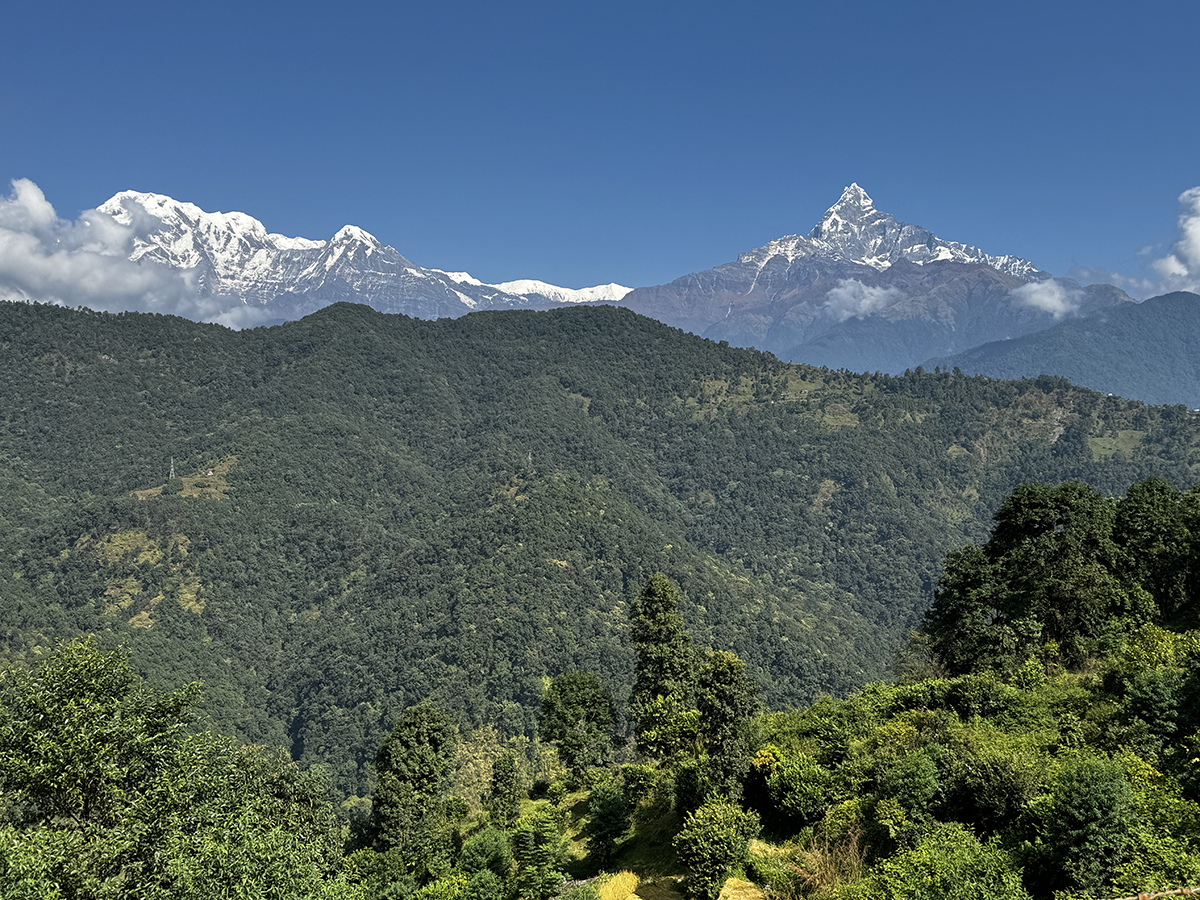
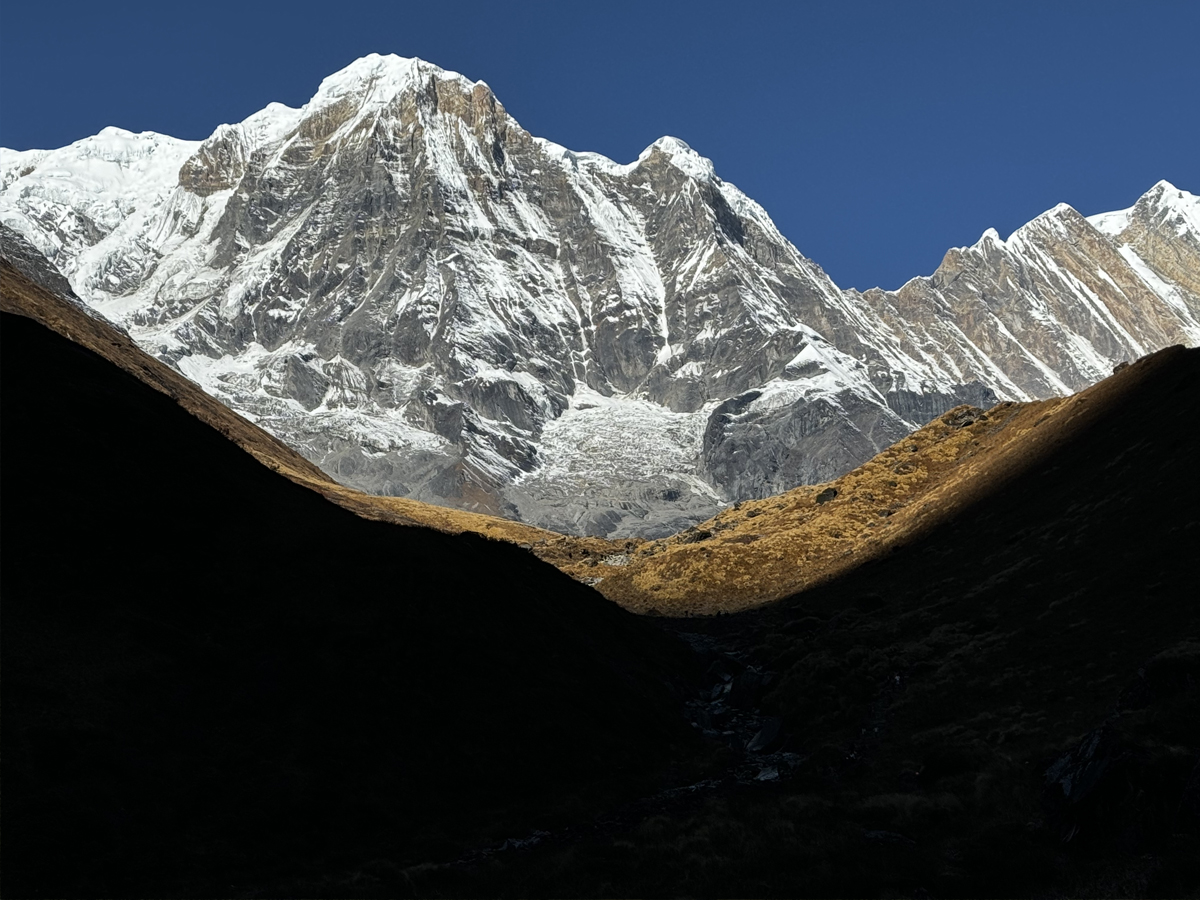
Awakening the Dragon
Since it's inception in 1995, the Annapurna 100 has changed course several times to try to keep it as a trail running 100km.
After Covid the event had gone into hibernation and when it was awoken the course again faced the challenge of trying to be a trail running course. With the development of roads and jeep tracks this was an almost impossible task. The organisors decided to run the event as best they could, to put it back on the world racing calendar once again. After the event was completed and using the latest satelite assisted apps to measure the course it was adjudicated to be 135KM long.
Next years event will see a radically different course that will not only be a true trail running event but also a world class challenge. We will be starting the event from Annapurna Base Camp and finishing in Pokhara.
We will be organising a full race and trekking package, that will not preclude those wishing to make their own way to the starting line.

Helping Nepali Runners
Our Community Advocate, Darby Maguire, has set up a "GoFundMe" page to raise money to support Nepali runners with their expenses and to create attractive prize funds to help make running an option for Nepalis as a way of life.
Please support this in any way you can even if it is just sharing the link: Annapurna 100 Go Fund Me.

Sponsorship
Thanks to Lee Sattin and Setyres (the leading tyre and auto service supplier in the South of England) we were not only able to put our drink stations and medical crew in place for the 2025 event, supporting the Nepalese runners, but we were also able to put in place the Dhaulagiri 100 to take place in April of 2026.
In the present uncertainty in the world it is very gratifying to see western businesses making a contribution to developing nations when governments are failing to act.

Butterfly Lodge
We are very pleased to accept the support of the Butterfly Lodge in letting us host our event at their hotel where the race started and finished.
We will continue to use them as our Pokhara base and accommodation in future years.
All new updates will be in red text.
Results
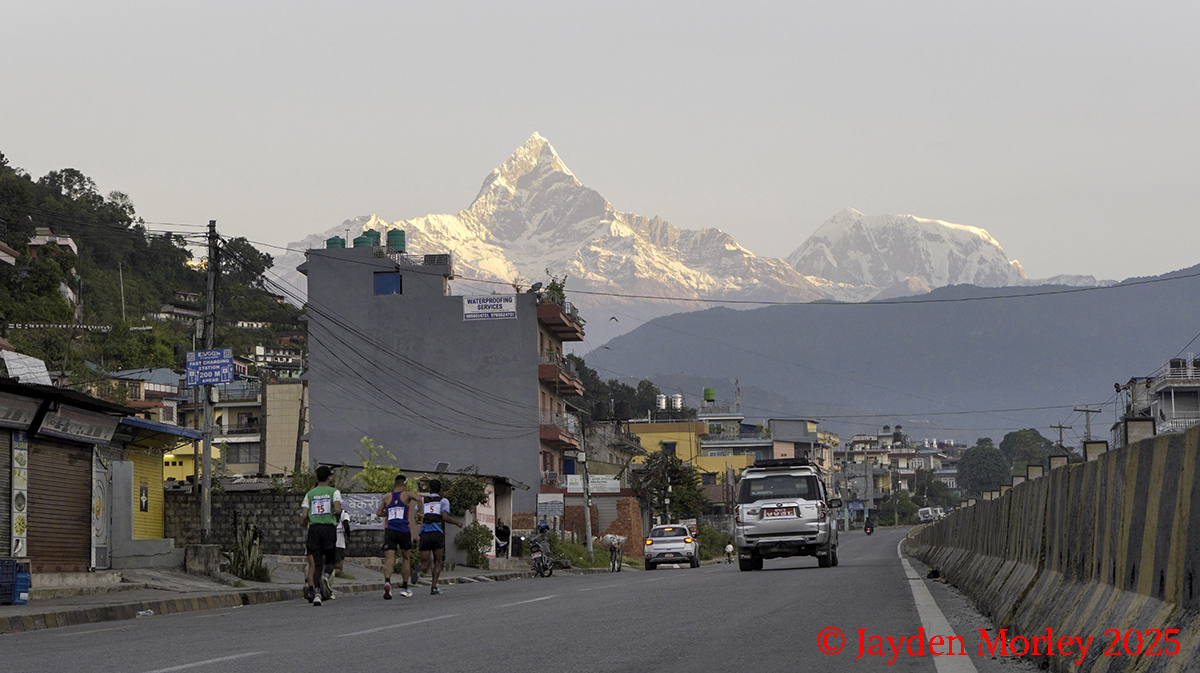
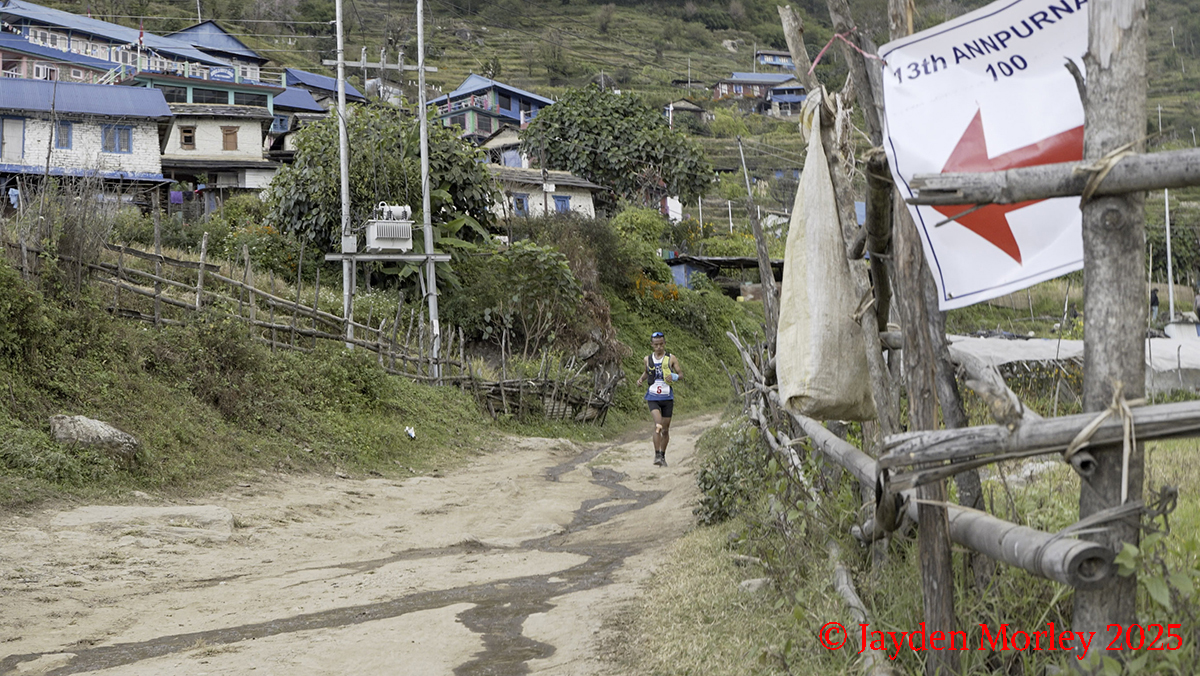
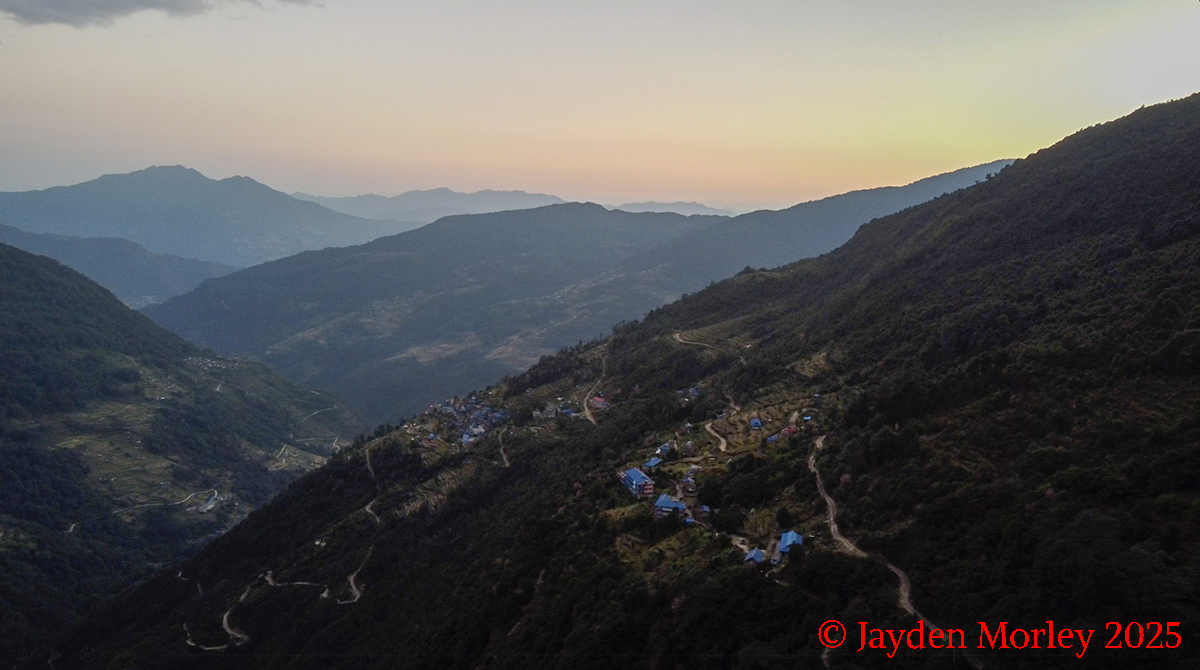
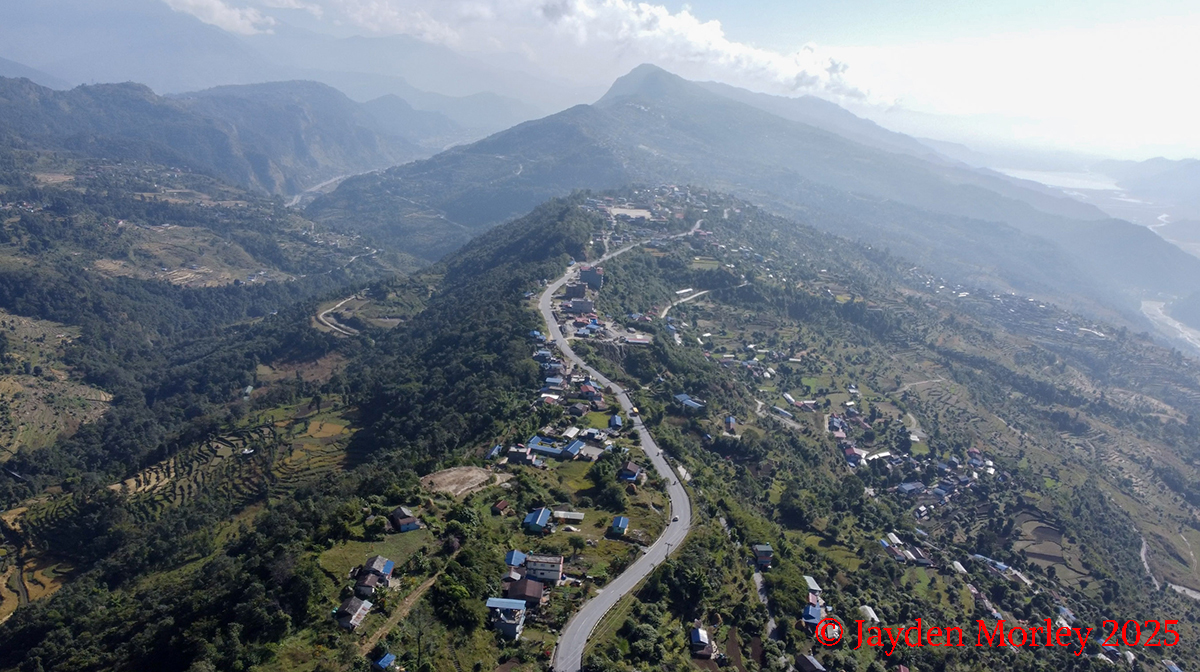
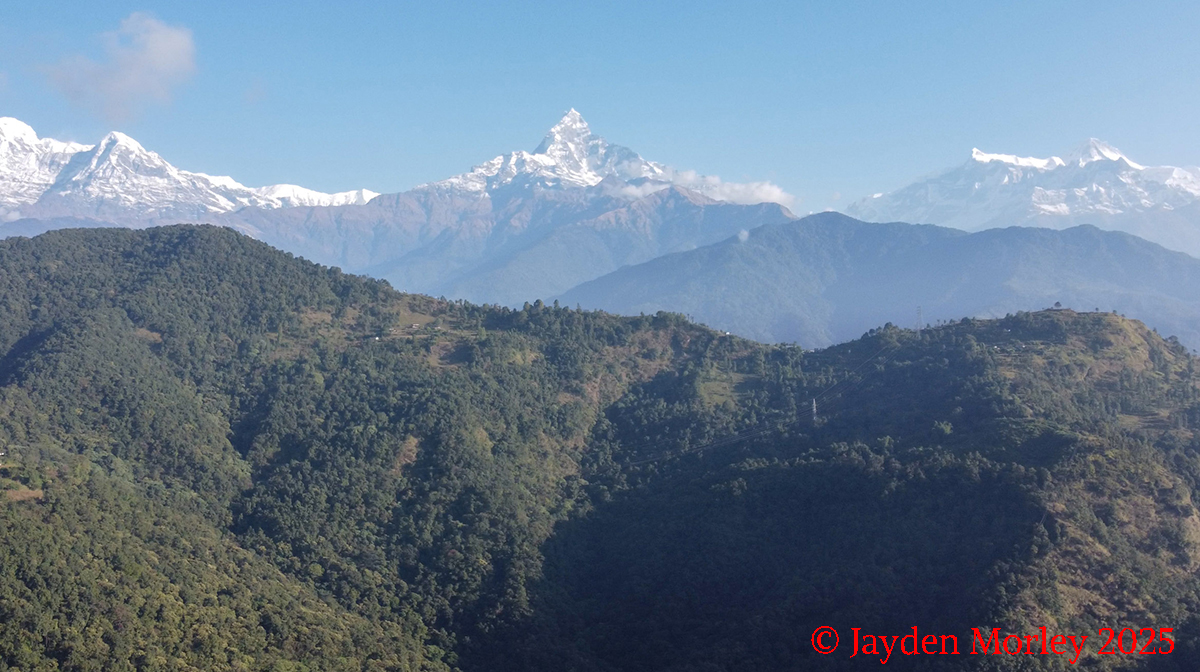
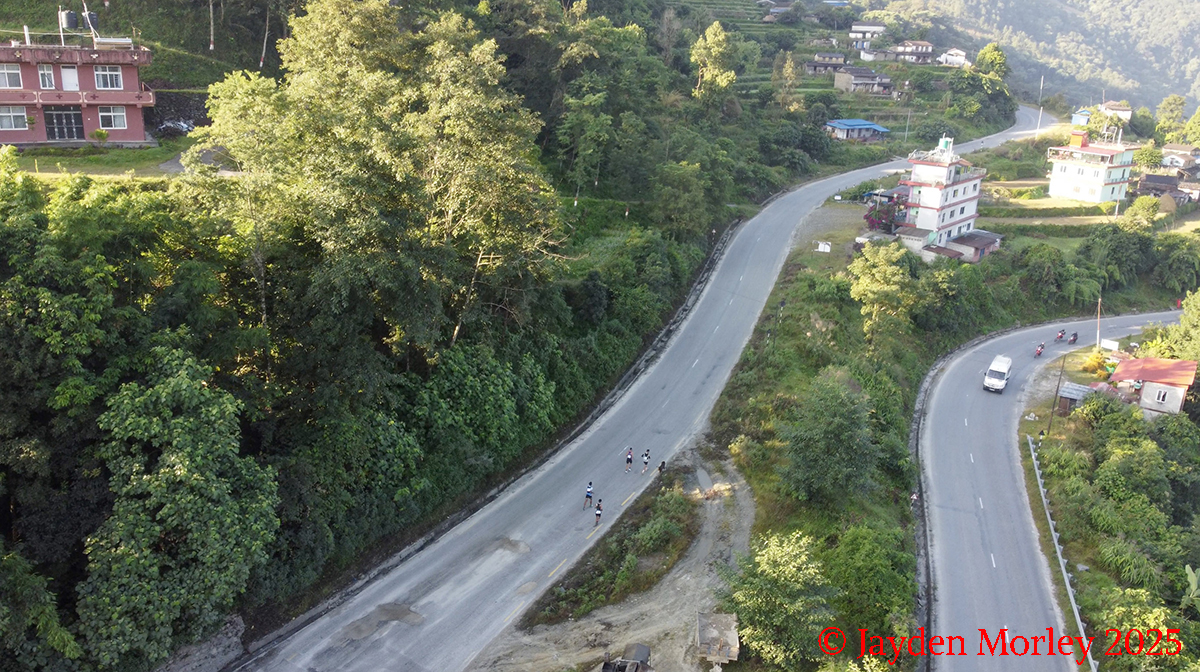

Finishers.
- 1st· 16:51:40 · Arjun Kulung Rai · Nepal
- 2nd · 16:51:45 · Durga Buda Magar · Nepal
- 3rd · 19:43:49 · Shakti Ram Roka · Nepal
Foreign Contenders
- 1st· 22:32:25 · Nick Lenzer · Australia
- 2nd · 22:32:28 · Darby Maguire · Australia
- 3rd ·14:02:15 · Colin Brus · France
The course was assessed as being 135km after satelite guided measuring. Nick and Darby completed their 100km distance and completed the rest of the event the next day. Their times are the sum of their accumulated times. Colin completed 75K and his timing was 14 hrs 2 mins 15 secs and with his excellent participation, the Race and Technical Directors decided him to award the 3rd position certifying his 75K distance and the official time of 14 hrs 2 mins 15 secs. Due to the challenging route of this Annapurna 100 only 3 Nepalese and 2 Australians completed the race from a field of 26 entrants.
It says a lot that of the 26 runners who started this race, only 5 completed the course.
Next years course will be very different. We believe it to be less than 100k but will be mostly on trails and trekking paths with only the last part on the road.
History
Origins

This event was first pioneered in 1995 with world renowned cricketeer Ian (Beefy) Botham, now Lord Botham.
The idea may have been the brainchild of Jan Turner, but it was only made possible by the organisational prowess of Ramesh Bhattachan.
It was conceived purely with the intention of developing trail running in Nepal and to support Nepali runners and tourism.
At the time there were no other trail running races in Nepal, with the possible exception of the Everest Marathon, another creation of Jan Turner.
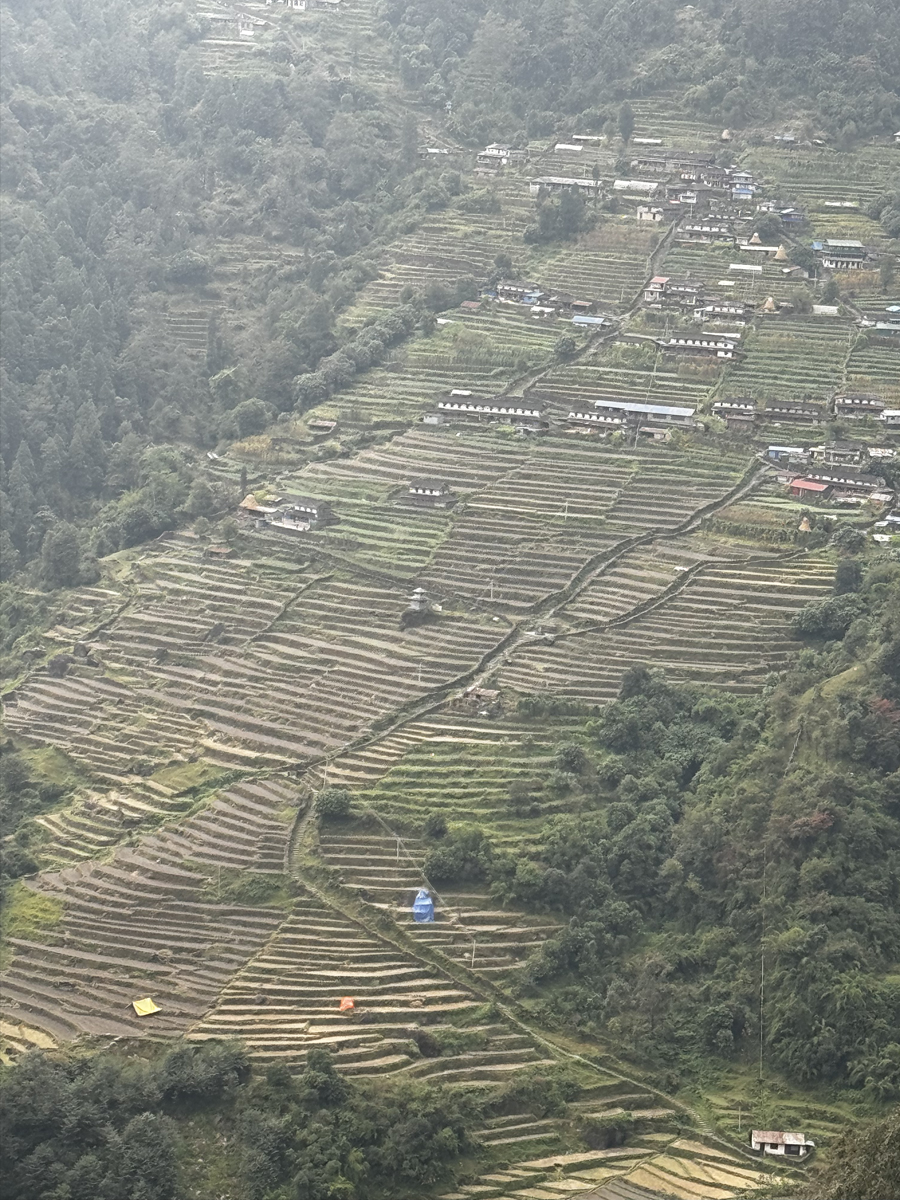
Gratitude
The difficulty of organising and promoting this event cannot be overstated.
This event would have disappeared many years ago if it wasn't for the persistence of Ramesh Bhattachan and of Richard Bull, who turned it into a world recognised event.
Covid took its toll on the event, but it is now back, ready for the next 30 years.

Legacy and Impact
Annapurna 100 has inspired a generation of Nepali runners and raised global awareness of sustainable sports tourism in Nepal.
Aims
This event is being organised for the benefit of Nepali runners, tourism and the locality.
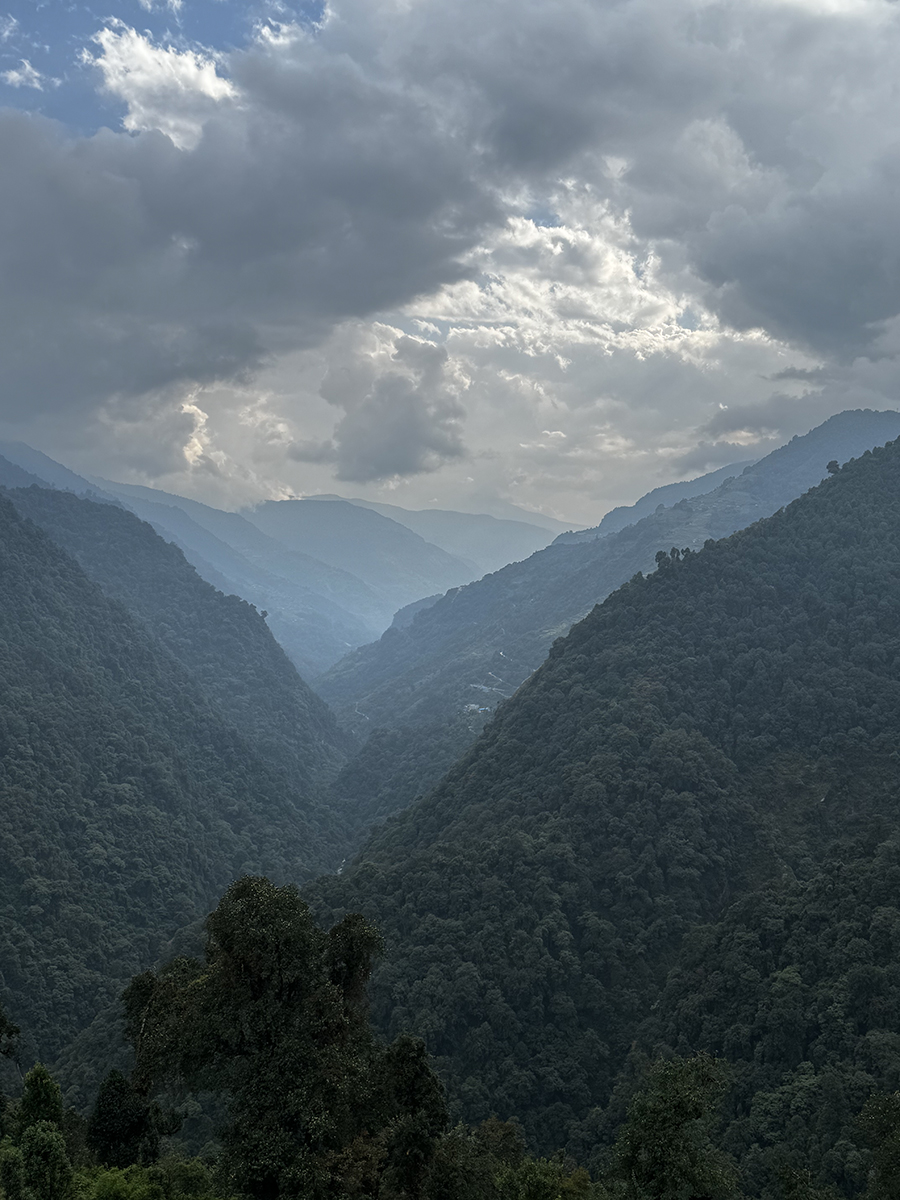
Pledges
All money and funds associated with this event will enter the Nepali economy.
This is not a business, nobody gets paid for organising it or makes a profit from the event.
We use any resources gained to support Nepalese runners and the local economy.
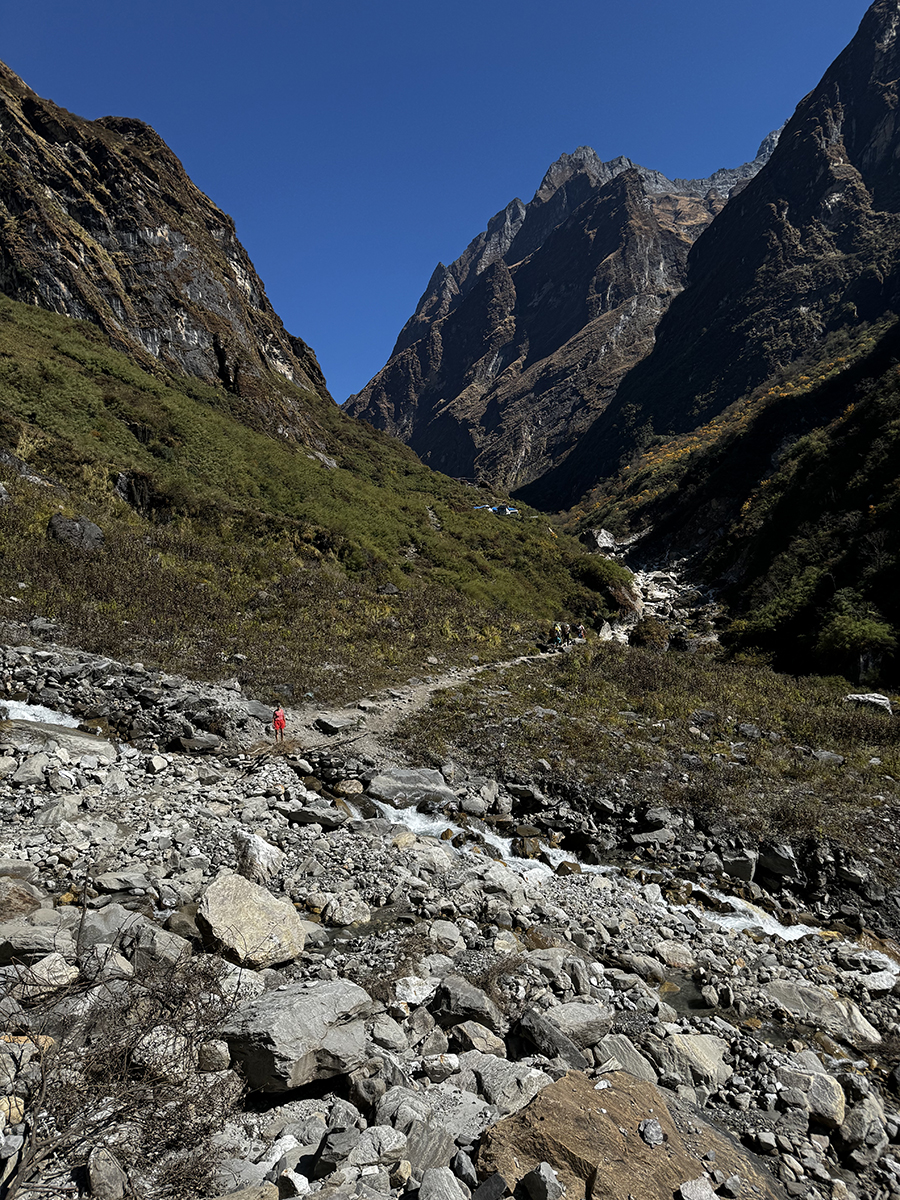
Making a positive contribution.
The event is intended to help the people in the region, Nepali runners and tourism in general.
We wish to promote sustainable responsible tourism for the benefit of Nepal.
The winners and placed individuals will get trophies and all finisshers will get a medal and certificate.
In line with our aim to promote Nepali runners we will be giving cash prizes to Nepali runners who finish in the first five places to encourage their participation in the event and to support them as athletes.
Please help promote this event through your contacts, blogs and posts on the internet to help cut down our advertising budget.
We have a links page to promote any business that promotes us with a link to their website.
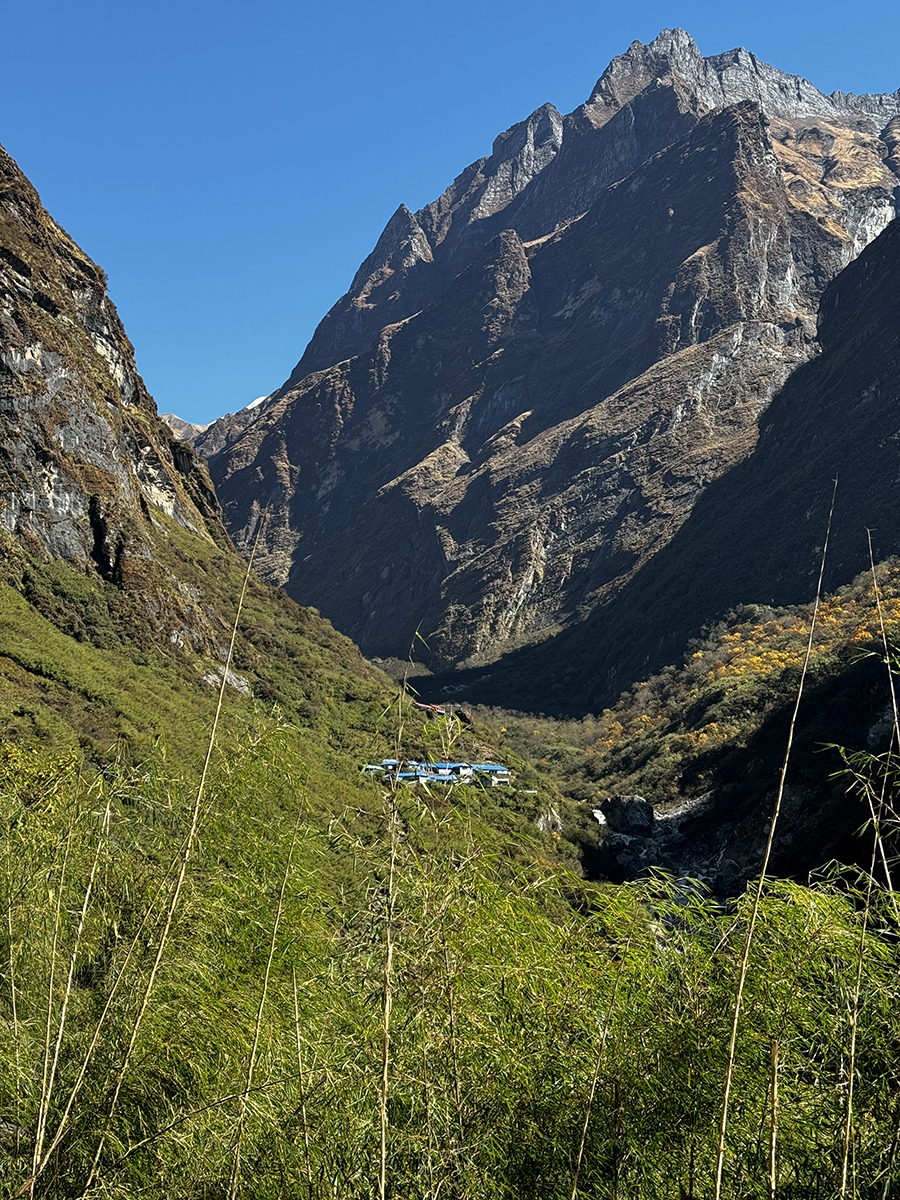
Encourage Environmental Stewardship
The race emphasizes clean, low-impact events and environmental awareness among runners and supporters.
Course
THIS IS NOW UNDER REVIEW TO FINISH IN POKHARA.
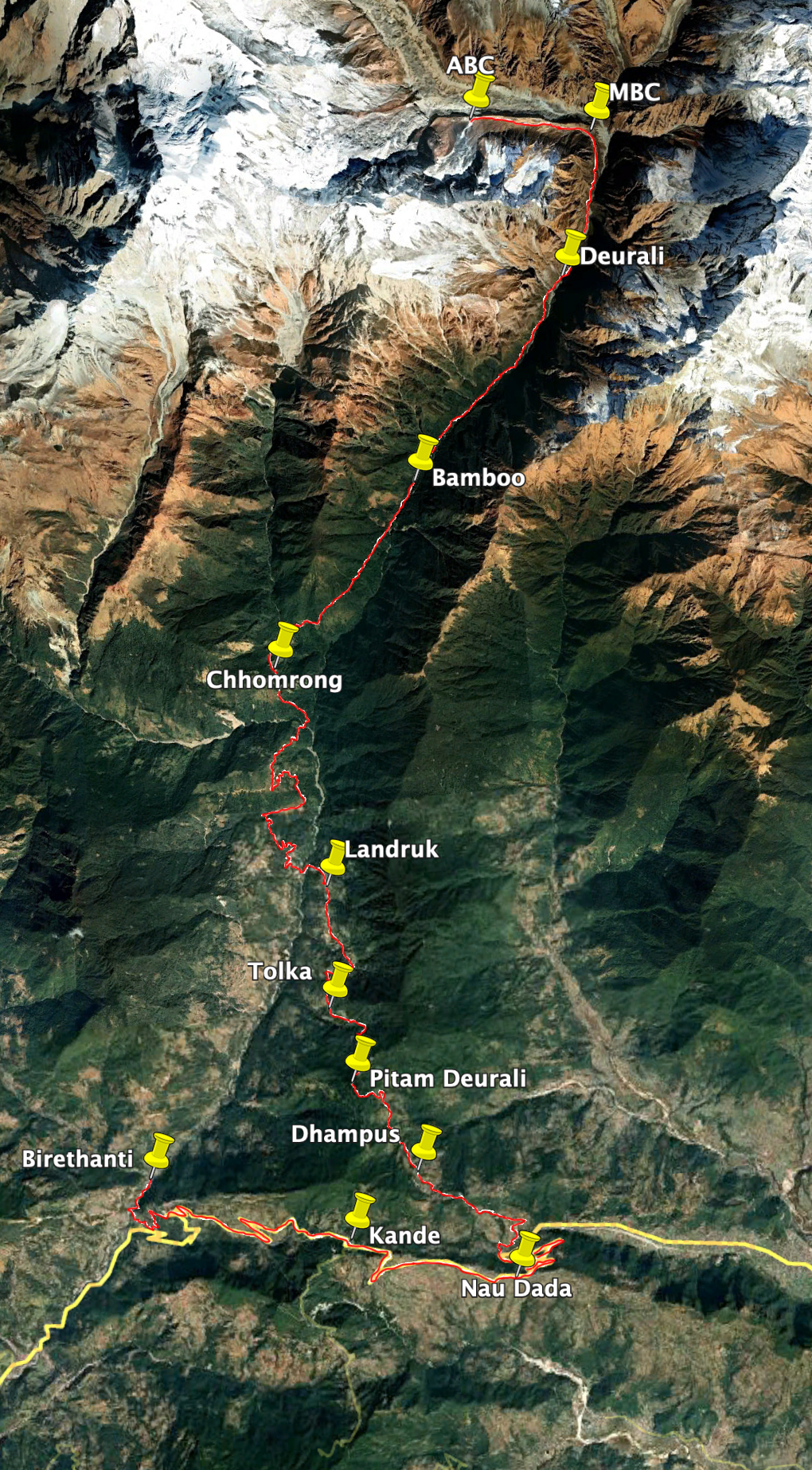
Checkpoints
- Start Point - Annapurna Base Camp - 4130m
- Support Point 1 - Machhapuchre Base Camp - 3700m
- Support Point 2 - Deurali - 3290m
- Support Point 3 - Bamboo - 2310m
- Checkpoint 1 - Chhomrong - 2170m
- Checkpoint 2 - Landruk - 1565m
- Support Point 4 - Tolka - 1760m
- Checkpoint 3 - Pitam Deurali 2100m
- Checkpoint 4 - Dhampus 1650 - 42K
- Checkpoint 5 - Nau Dada 1700m - 55K
- Checkpoint 6 - Kandey 1770m 60K
- Finish Point - BIRETHATI 1025m - 70K

Elevation Profile
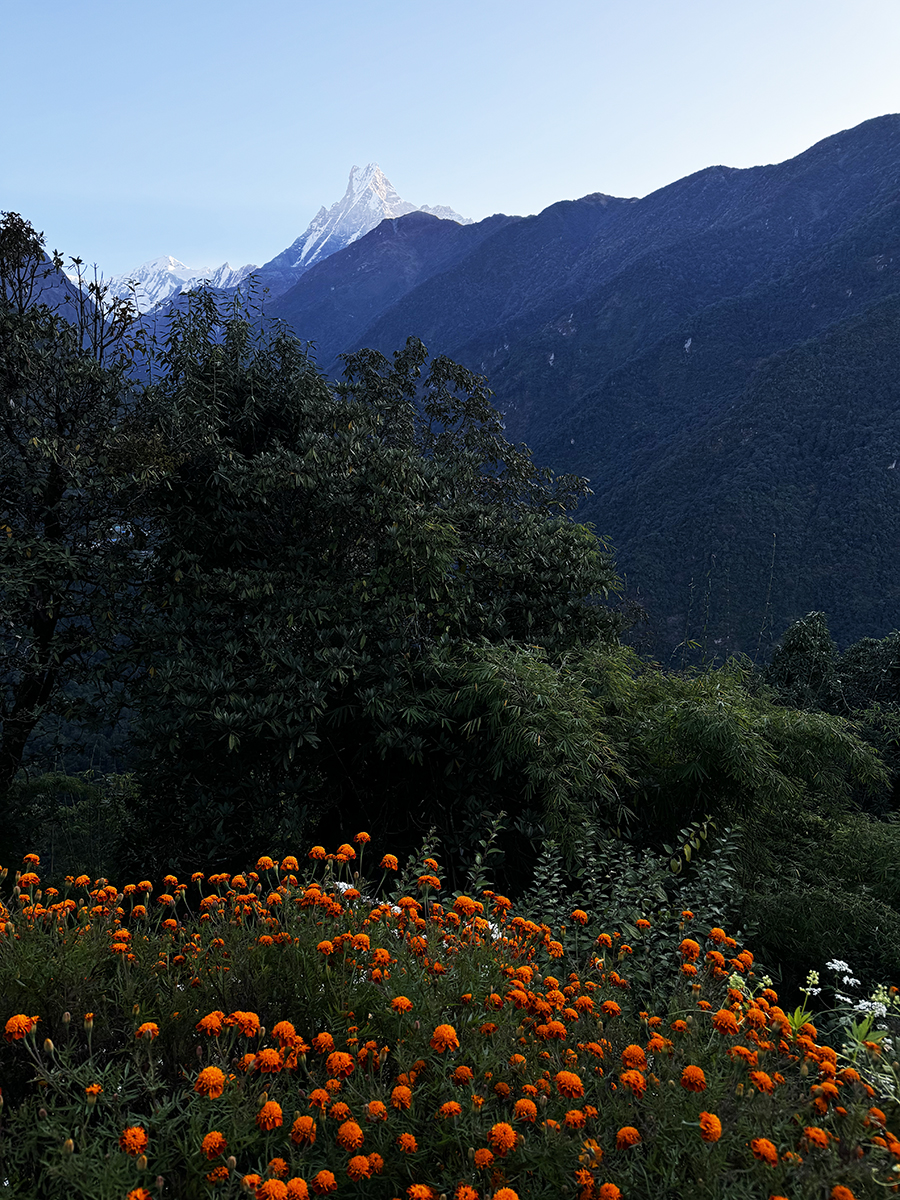
The Total number of participants is limited to 100.
That is another reason we call it the Annapurna 100.... We try to make it 100k but it is notoriously difficult to measure. In 2025 we thought it was 100k but Strava measured it at 135k. Next years course, which we are now perfecting, will be a Strava measured 100k. You will be able to follow the course on your smart watches.
Personnel
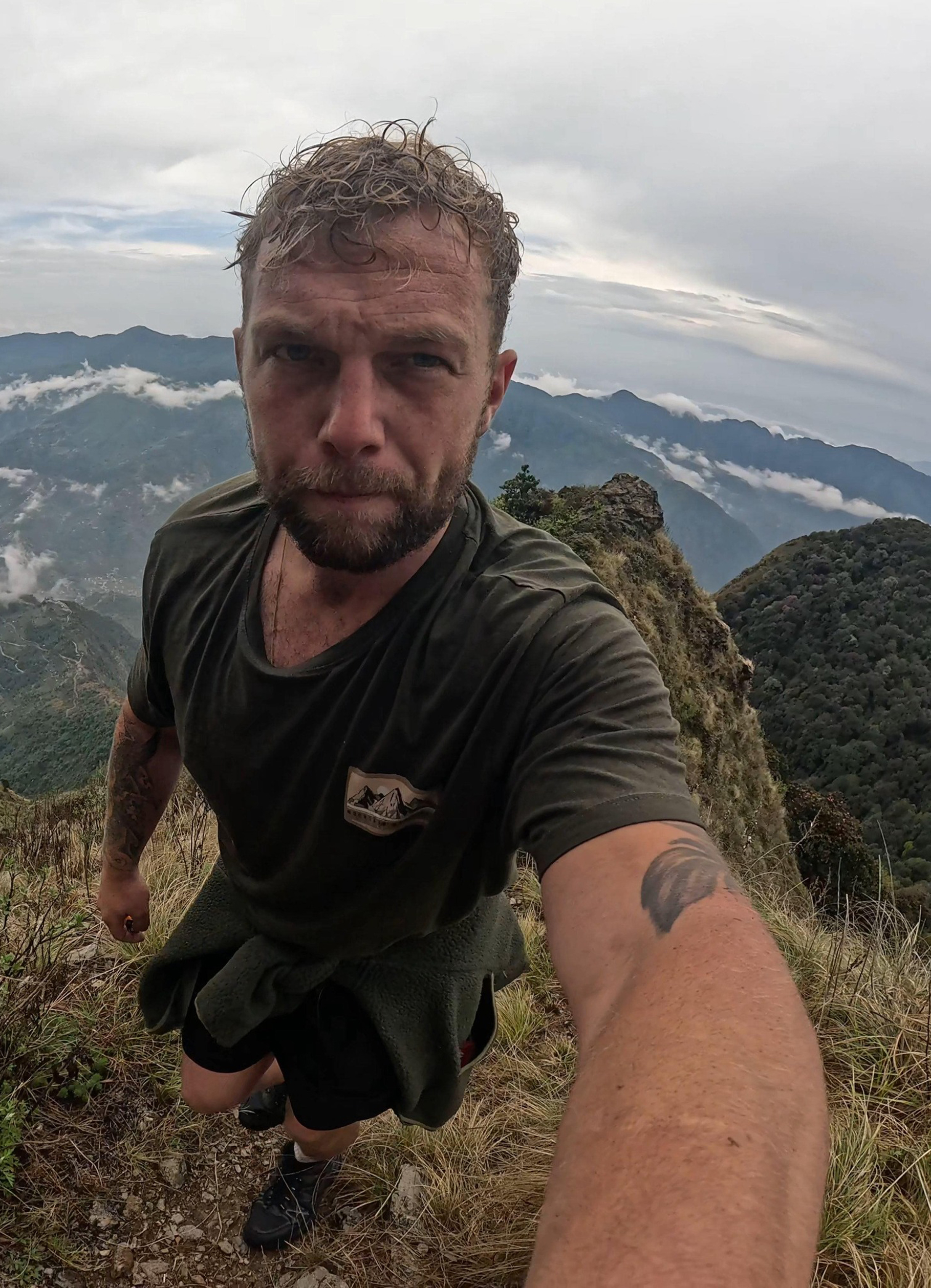
Jack Dai
Jack Dai the renowned Englishman who vlogs in Nepali will be part of our media team and the new Race Director. He lives in Pokhara and his local knowledge is invaluable in making the event a success and media connections will help make us known through YouTube and Social Media throughout Nepal and beyond.
Jack has become famous for going into the villages and shrines where the tourists don't usually go, shedding light on the true Nepal and bringing his hilarious exploits to the world in fluent Nepali.
You can watch his exploits on:
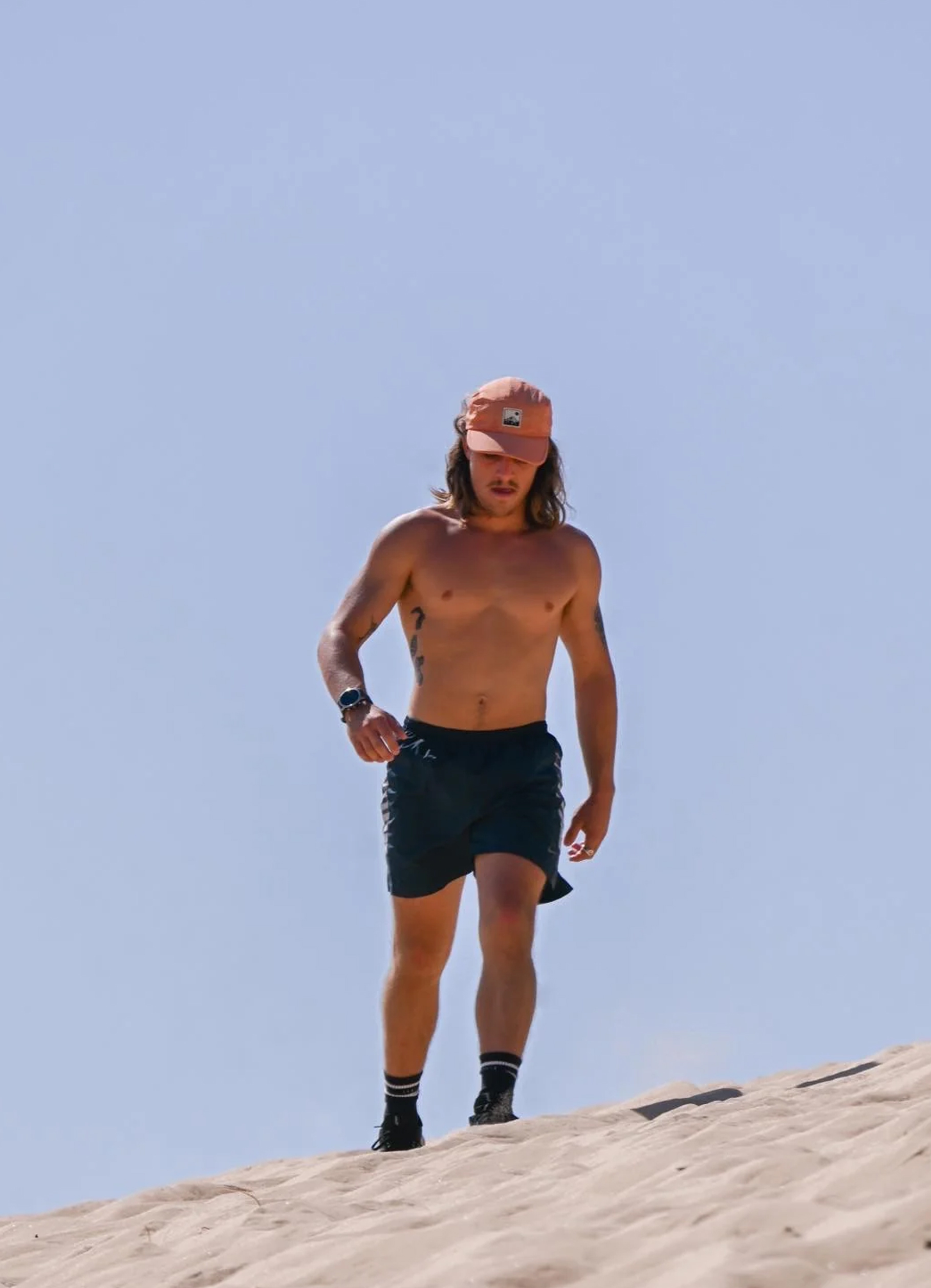
Darby Maguire
Darby is a 22-year-old ultra runner from Australia with a deep passion for endurance running and social impact.
He completed a self-supported run from the Gold Coast to Sydney, covering 900 km at a rate of 60 km per day. The effort raised $50,000 for mental health support services.
He then broke the course record for Relay for Life, running 100 miles in 24 hours, and has since gone on to organise and run multiple marathons and ultra marathons to help feed people in need on the streets of Sydney.
Darby brings both youthful energy and seasoned endurance to the Annapurna 100, and looks forward to sharing the trail with like-minded runners while continuing his mission of running with purpose.
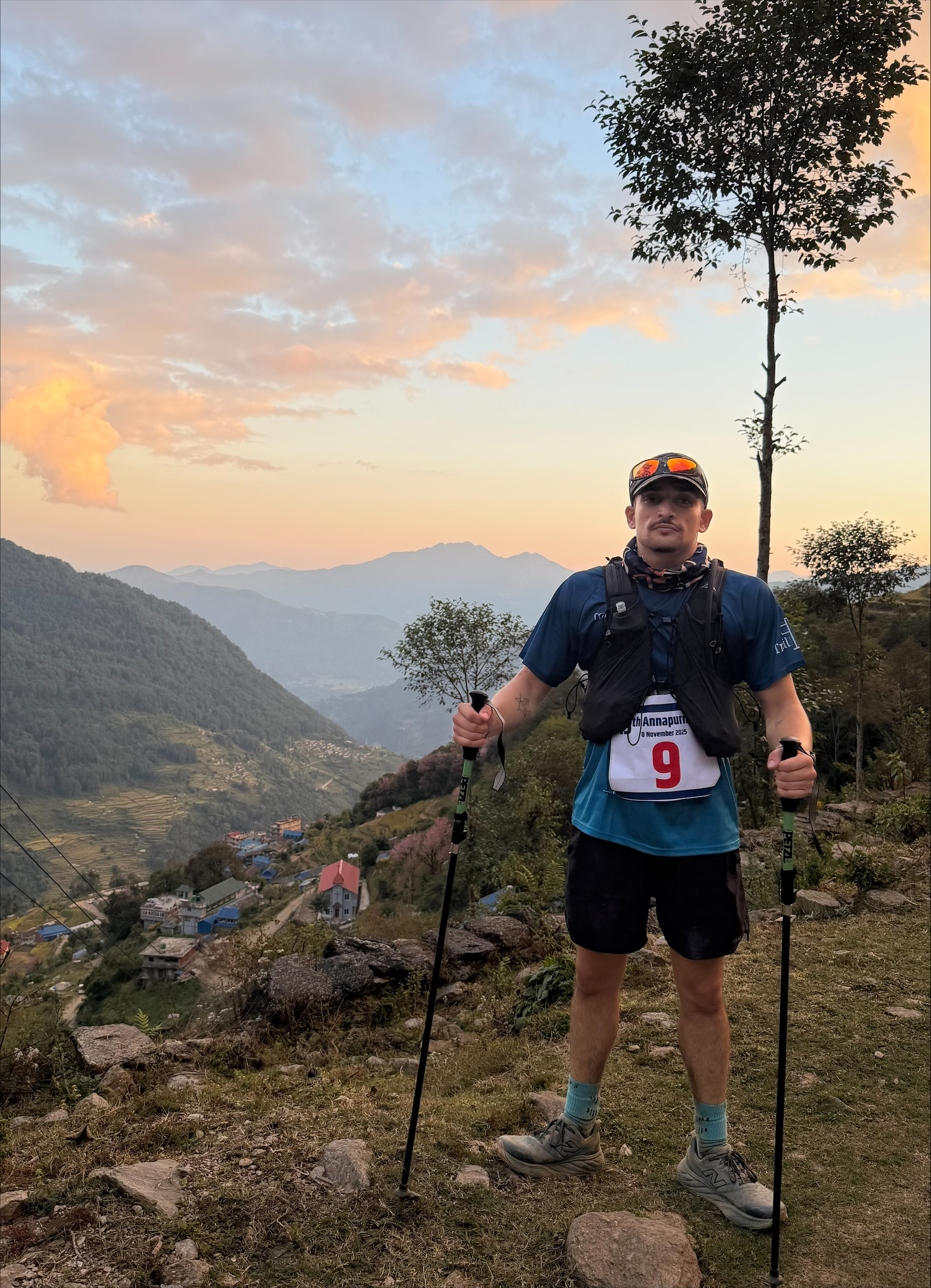
Nick Lenzer
Nick is a Sydney-based ultra runner driven by a deep belief in the transformative power of endurance running. What began as a personal challenge has since evolved into a mission to show others what is possible when you push beyond your perceived physical limits.
Nick has completed a range of ultramarathons across Sydney, both supported and unsupported. In 2024 he completed an unsupported 70km ultramarathon from the southernmost point of Sydney to the northernmost point. Shortly after, he competed in the Sydney Ultra Marathon, an 80km battle through some of Sydney’s toughest trails.
He is determined to push the boundaries of what his body is capable of and since competing in the Annapurna100 in 2025, his passion has only grown. Whether on trail or pavement, Nick runs with the intention of uplifting others, inviting them into the mindset that anything is achievable when approached with dedication and perseverance.
You can keep up with Nick here:
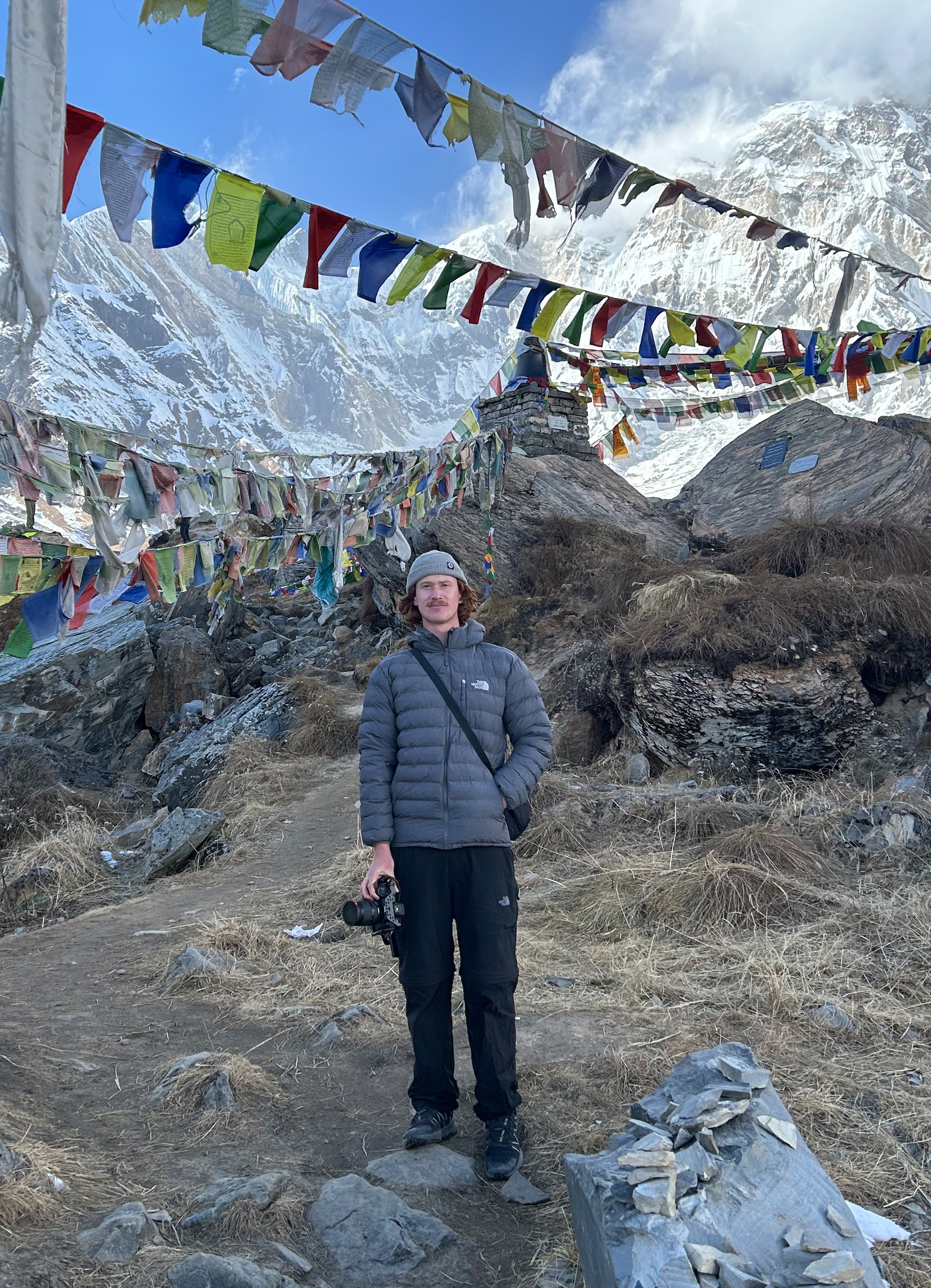
Jayden Morley
Jayden is a videographer and photographer based in Wollongong in Austrarlia.
He works with standard and drone video to make compelling documentaries.
He covered the 2025 event and pioneered the new course for 2026 with Nick and Darby.
You can see his work here:
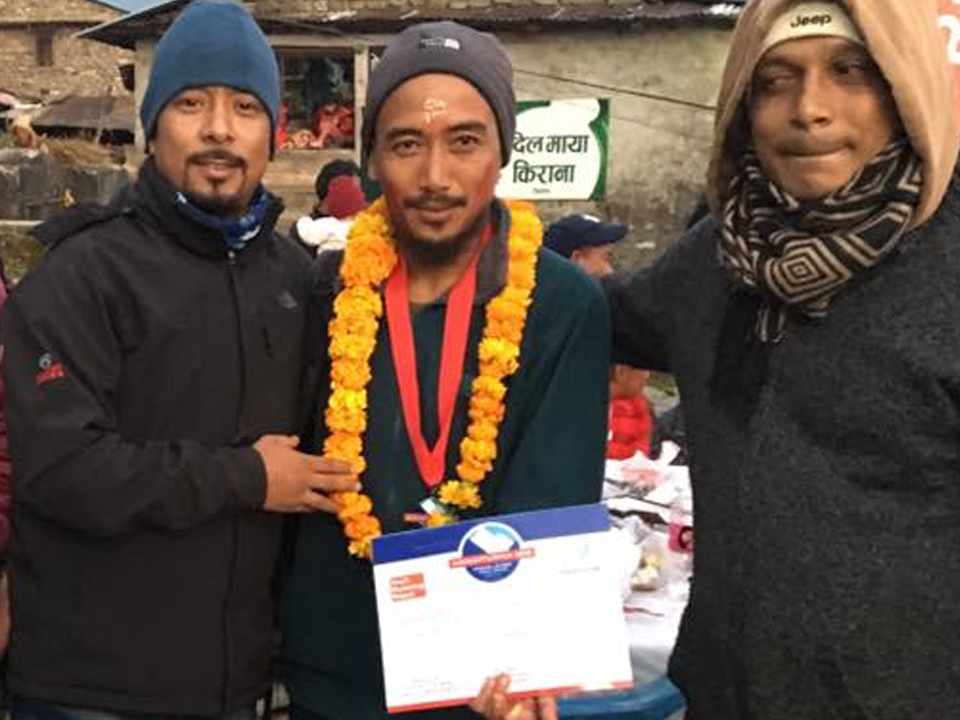
Bikash Gurung
Bikash is an experienced Nepali Ultrarunner and race organisor who lives at Kande on the race route.
He has worked with many local agencies to improve the lives of local rural Nepalis.
He has a very important role in ensuring the race is intergrated into the local communities so that it is a direct benefit to them.
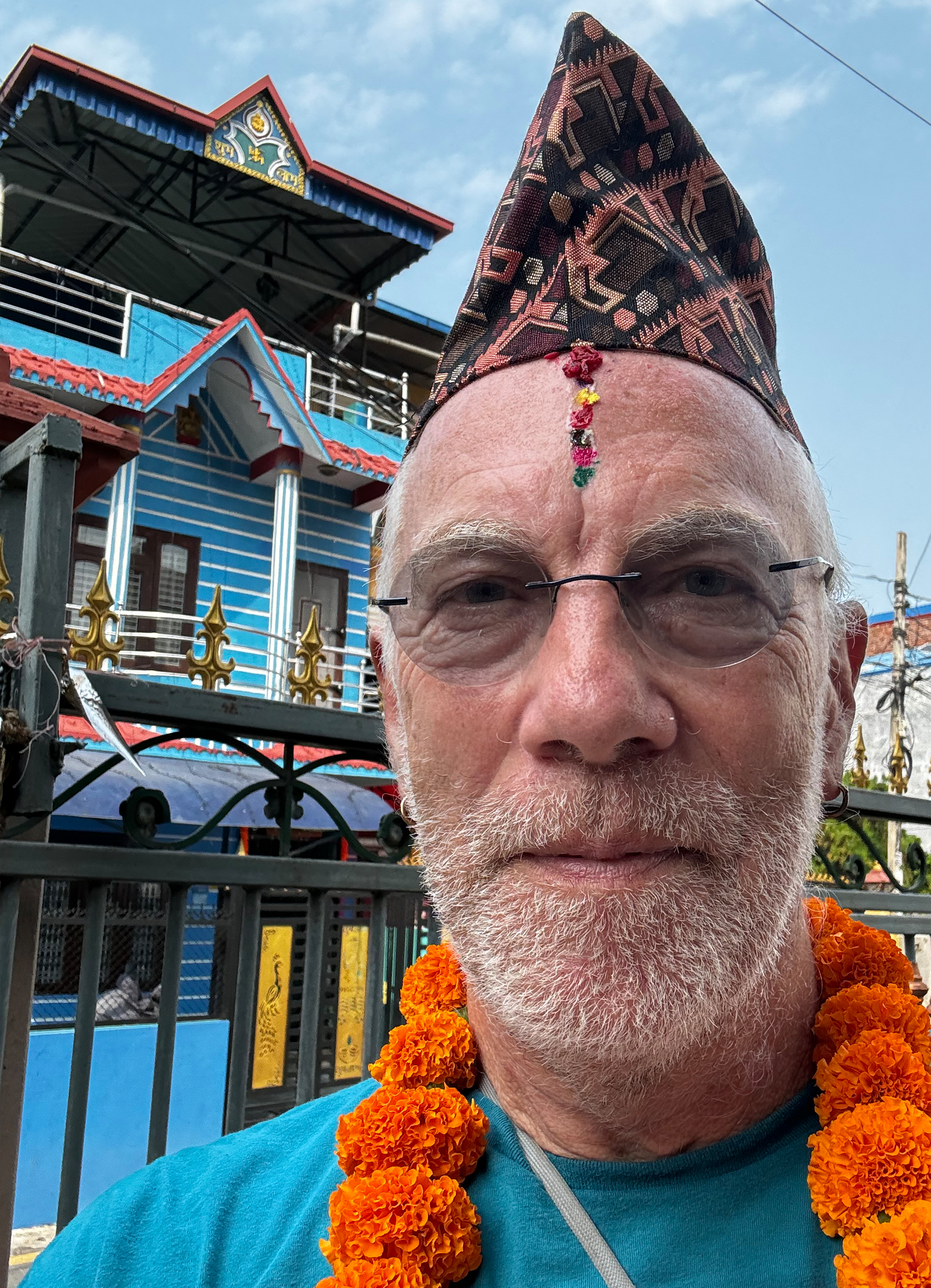
Jan Turner
Jan is an Artist who first came to Nepal to paint in 1980.
Jan was responsible for creating the Everest Marathon with Tony Hunt in 1985, Nepal's first international race.
He then went on to create the Annapurna Triathlon, with John Williams and Jane King. It was Nepal's first international triathlon. He helped set up the Kathmandu Marathon with Ajay and Sam Simha before turning his mind to the Annapurna 100, where he persuaded Ian Botham to come and pioneer the event.
After that became a success, thanks to the efforts of Ramesh and Richard Bull, he created the Everest Ultra with Ramesh.
When Jan started the Everest Marathon there were no ultra races in Nepal, now ultra running is an industry in its own right.
All Jan's efforts have been towards developing Nepalese tourism and Nepali runners. Jan is responsible for the overall organisation and media promotion of the event.
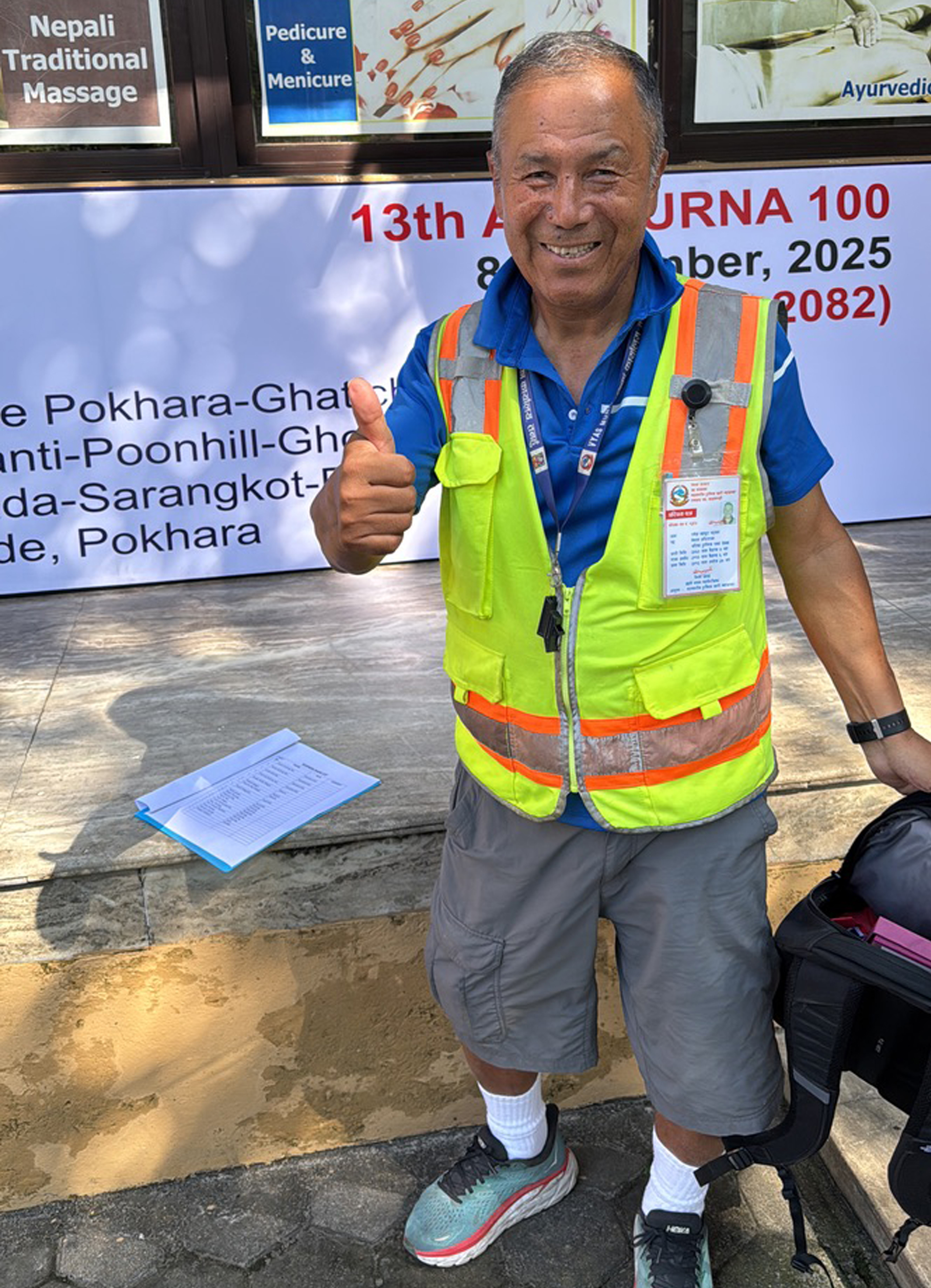
Ramesh Bhattachan
Ramesh helped pioneer this event with Ian Botham and it is fair to say that the event would not have happened without him.
Ramesh was instrumental in the success of the Annapurna Triathlon, Nepal's first triathlon, the Everest Ultra, and many other sporting events not related to running.
He served as a Gurkha in the Brigade of Gurkhas of the British Army from 1974 to 1992, retiring with an Exemplary Service Record.
With his vast experience of event organisation in Nepal, Ramesh's knowledge is invaluable and his guidance priceless in the smooth running of the event.
He will act as chief advisor and executive producer.

Medical Team & Volunteers
We will have an ambulance on standby that will have access to the course via the road network that supplies the villages in the area.
Events such as these rely on many volunteers and staff who all in their own way make it a success.
Race Package
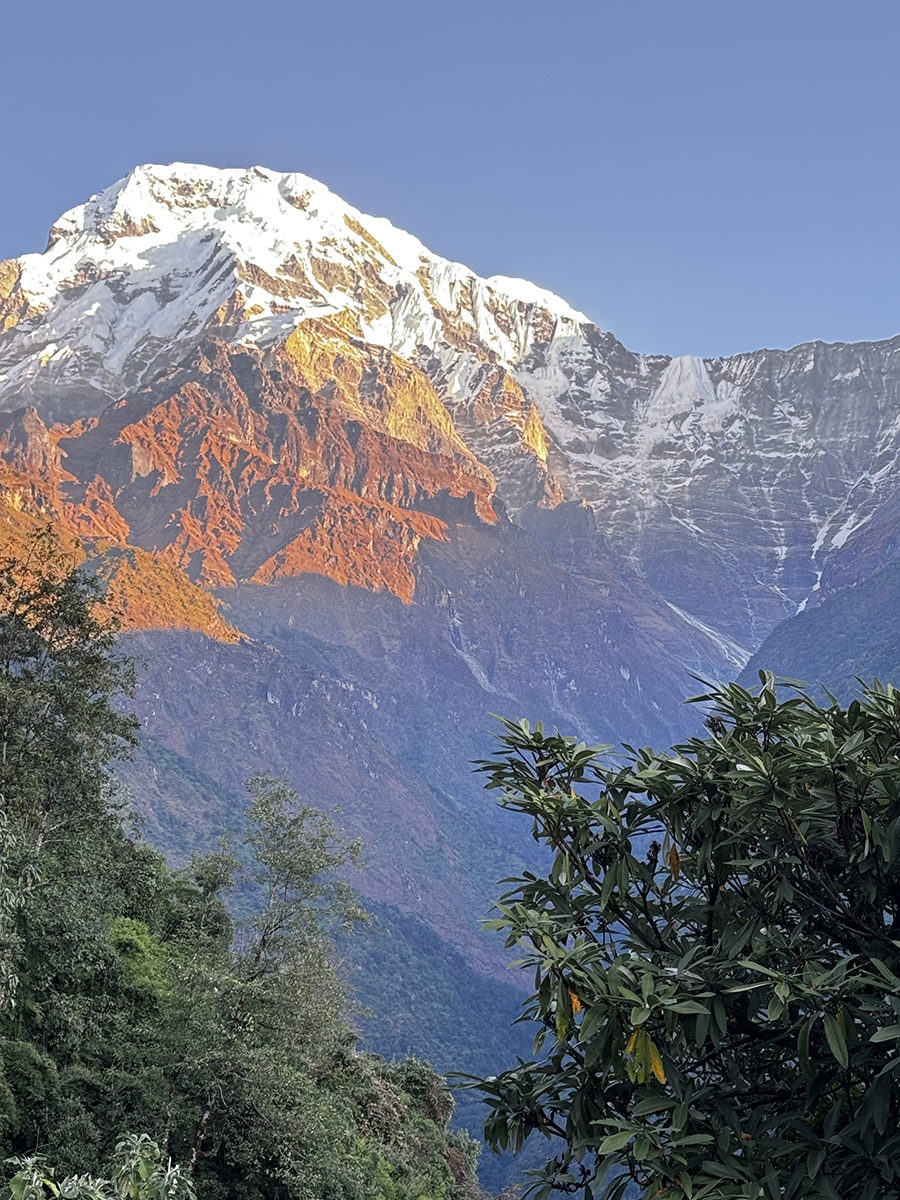
Complete Package - $850
- Day 1 - Arrive Kathmandu - Welcome Reception.
- Day 2 - Local Sightseeing and Rest.
- Day 3 - Depart for Pokhara - Luxury Coach.
- Day 4 - Local Sightseeing - Preparation for Trek.
- Day 5 - Bus to Ghandruk - Trek to Chomrung.
- Day 6 - Trek to Bamboo.
- Day 7 - Trek to Deurali.
- Day 8 - Trek to Machapuchare Base Camp.
- Day 9 - Acclimatise
- Day 10 - Trek to Annapurna Base Camp.
- Day 11 - Race Day
- Day 12 - Prize Distribution - Depart to Pokhara.
- Day 13 - Depart for Kathmandu - By Air.
- Day 14 - International Departure.
Package Includes:
- All local transport - Airport pick up and drop off.
- Annapurna Trekking Permit.
- Kathmandu - 3 Nights hotel - Breakfast, Lunch, Dinner.
- Pokhara - 3 Nights hotel - Breakfast, Lunch, Dinner.
- 6 Days Trek to Annapurna Base Camp - Room, Breakfast, Lunch, Dinner.
- Porter arrangements from ABC to Birethanti - Finish Point.
- Official Tee-Shirt
- Race Entry Fee.
- Trophies, Medals, Certificates.
- Luxury Bus Kathmandu to Pokhara.
- Flight from Pokhara to Kathmandu.
- Local Sightseeing in Kathmandu and Pokhara.
- Mineral Water and Sustenance at Support Stations.
- Volunteers and Ambulance Support on Race Day.
Minimum Kit
We do not want to be disqualifying people because they haven't got a minimum kit with them. So we won't be. The minimum kit list is advisory, strongly advisory! Everyone is (strongly) advised to carry or have available the following kit:
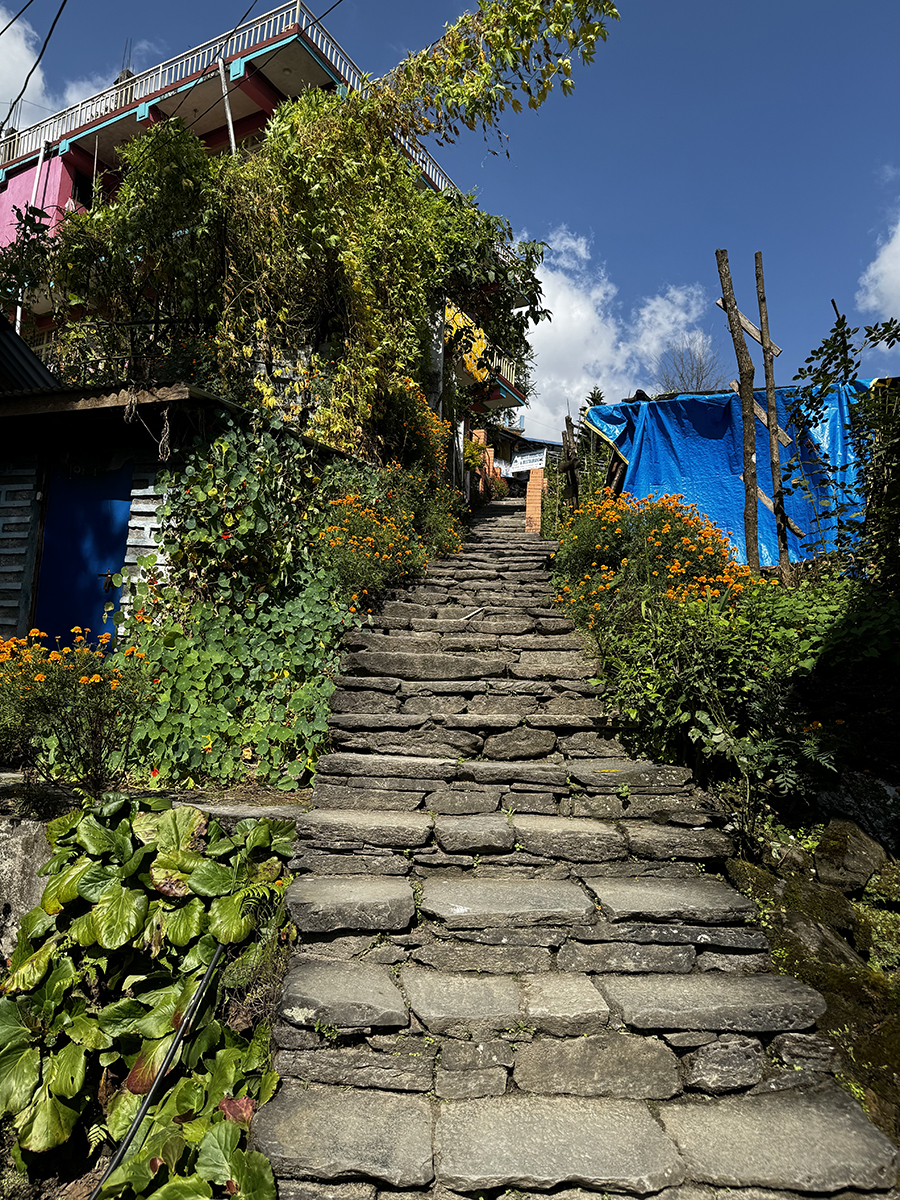
Essential Kit
These items are considered essential for your safety during the race:
- Water bottle(s) or bladder carrying minimum 1 litre
- Windproof and/or waterproof jacket
- Trousers/tights covering below the knee
- Fleece long-sleeved top
- Emergency blanket
- Buff or hat
- Whistle
- Head torch (+ spare batteries)
- Rs 2,000/- cash in small change
- 400 calories of food – energy bars/gels or other energy-rich food (e.g., dried fruit & nuts)

Additional Recommended Items
While not mandatory, these items are highly recommended for your comfort and safety:
- Sun Screen
- Second Layer Jacket for when you stop
- Small Medical Kit (plasters, blister treatment, painkillers)
- Rehydration Salts or Sachets
- Mobile Phone with Local Sim Card
- Waterproof bags for electronics and spare clothing
- Lightweight gloves
- Extra pair of socks
- Personal medications
Entry
Entry to the race is limited to 100 individuals and places will be allocated on a first come, first served basis.
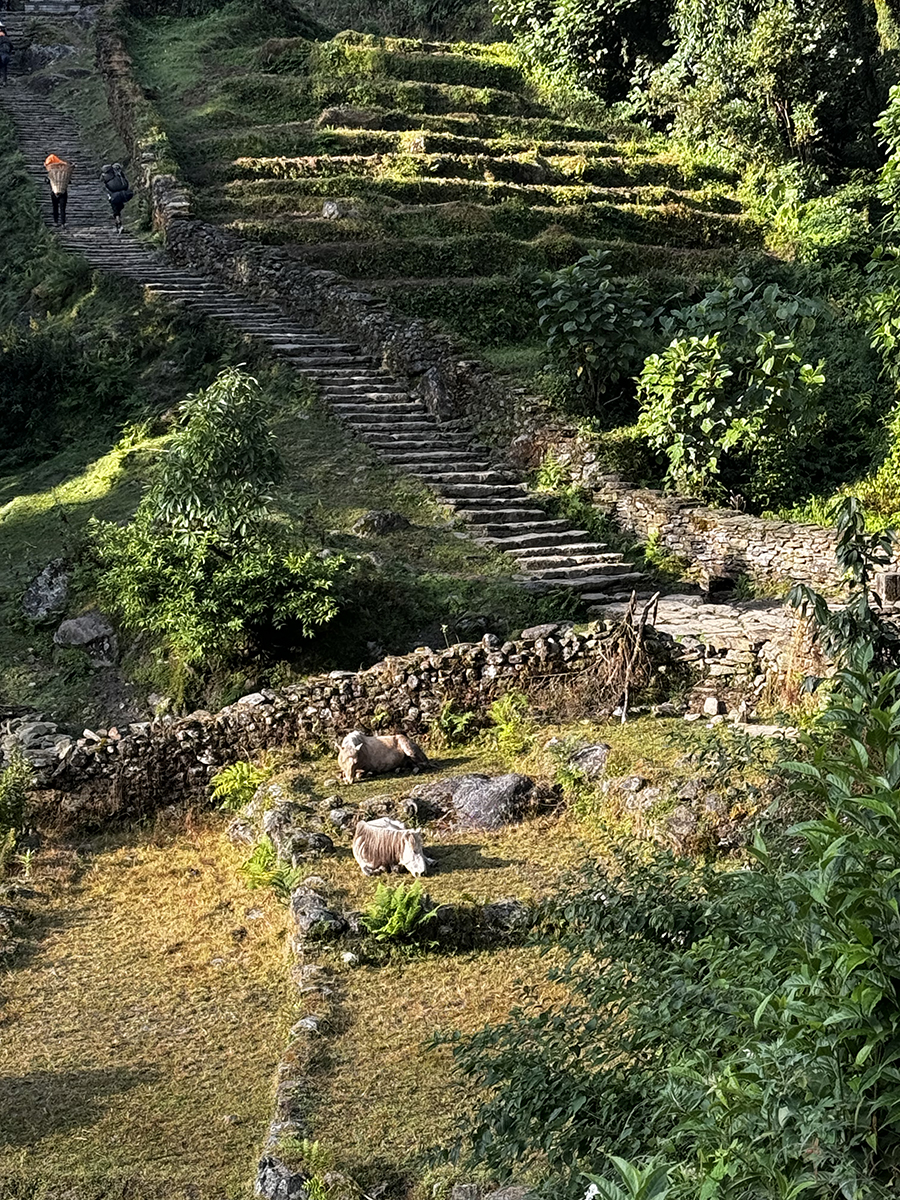
Pioneers
This is definitely NOT an entry level event. You will be running at altitude and on mountain trails.
Non Nepali Entry Fee: $250
The entry fee for those making their own way to the starting line will be: $250. Selected Nepalis will enter without charge (The aim of the race is to develop Nepali runners).
Securing your place requires the payment of the entry fee, regardless of whether you choose to join the trekking group or not.
ENTER THE RACE
What to Expect
As a pioneering participant, you'll be part of an exclusive group helping to establish this new course. Here's what you need to know:
While there are no traditional prizes, all pioneers will be permanently recognized on our website and in race history. Your participation will help shape the future of this event.
Note: This is a challenging, self-supported event. Participants should have previous experience with ultra-distance trail running.




